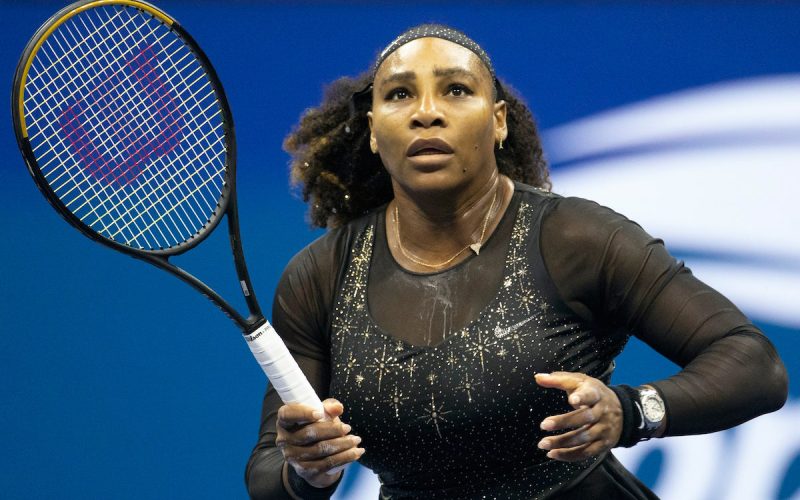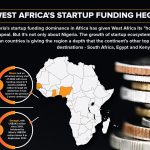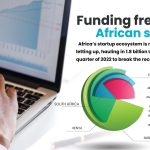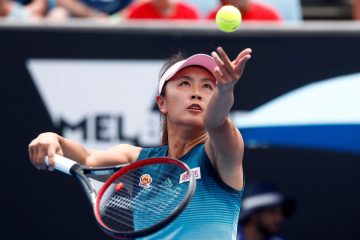NIGERIA is the leading African destination for foreign direct investments in technology startup businesses. Between 2015 and 2022, Nigerian technology startups have secured funding totalling just over US$2 billion. This is the highest amount of funding recorded by any country in Africa.
The “big-four” countries of Nigeria, Egypt, South Africa and Kenya, are leading Africa’s startup scene. They currently account for about a third of the continent’s start-up incubators and accelerators and receive 80% of technology startup FDI into Africa.
What is interesting is that Nigeria remains the top destination for technology investments in Africa despite its endemic corruption, high poverty rate and poor economic performance.

This is underscored by the announcement that recently retired tennis legend Serena Williams’s venture capital firm, Serena Ventures, is backing Nigerian data and insights firm Stears in a US$3.3 million seed round led by MaC Venture Capital. This means Serena Ventures has partnered with institutional investors MaC Venture Capital, Melo 7 Tech Partners, Omidyar Group and Cascador to invest $3.3 million in Stears.
What is the attraction?
The “big-four” countries attract more startup FDI than other African countries because of their large economies and sizeable populations.
Nigeria, for example, with its GDP of roughly $440bn and population of roughly 211 million, is projected to be the third largest country by population in the world by 2050. Likewise, Egypt, Kenya and South Africa boast some of the largest economies in Africa, with GDP’s of $404bn, $110bn and $420bn respectively.
Investors are attracted by the large markets in these countries and the potential of technology firms in them to expand across Africa.
Why Stears got Serena’s nod
There are several reasons for Stears’ investment appeal. It has grown at around 6.5% month-on-month since 2017 and has doubled its user numbers over the last year. Enterprise customers, mainly employees working in various finance-related institutions across Nigeria, now provide more than 75% of its revenue, up from 45% in 2021.
This makes it a rare paywalled subscription success story in Nigeria, where consumers are generally unwilling to pay websites for information.
Stears has also positioned itself as a collector and analyst of African data for international organisations. Its clients include the European Investment Bank, United Nations Development Programme and the UK’s Foreign, Commonwealth & Development Office.
Stears uses its data and analysis skills to produce interactive visualisation and created Nigeria’s first real-time election tracker during the 2019 general election cycle.
The company says it plans to use the new seed funding to expand its coverage geographically by establishing a presence in east and southern Africa and by expanding its product offerings.
Corruption is still a problem
Due to corruption, Nigeria, unlike other oil producing countries like Norway and Qatar, has been unable to benefit from surging global oil prices. It used to be Africa’s largest oil producer but lost this position to Angola this year.
The increasing importance of Nigerian technology startups is in keeping with global realities. With the threat of climate change and the potential transition away from fossil fuels, Nigeria’s oil industry is likely to take a hit.
While it is good news that Nigeria continues to attract technology startup investment, urgent action is needed to tackle corruption. This will attract more investment into the country and help to reduce poverty. What is more, technology startups can help to fight corruption, and they can secure investment while doing so.
Our research highlighted the activities of such a case. BudgIT, is a Nigerian NGO that secured $400,000 from the Omidyar Network in 2014. In 2016, it was able to secure a further $1,4 billion from the Bill & Melinda Gates Foundation.
BudgIT provides technology products that empower citizens by providing access to budget data that is often shrouded in secrecy. Like Stears, it pioneered the open and active engagement of citizens to advocate for transparency regarding the budgeting process in Nigeria.
Stears has done something similar with its real-time election tracker. This technology product helped to give Stears credibility in the technology industry. It also helped to improve electoral transparency in Nigeria.
Such activities can help foster accountability. This will in turn give foreign investors more confidence to invest in African countries and highlight the value of such companies.
Things can be better
Technology firms are sources of employment for millions of people on the planet and their activities are changing the nature of work. Nigeria needs this sector to succeed, if only to help with its unemployment problem.
To do this, political stability, lower production costs and good infrastructure (particularly power, communication and transport) can help. Liberal foreign direct investment policies that do not restrict investment and the free flow of capital would also be beneficial.
Crucially, Nigerian technology startups will attract more investment if Nigeria is less corrupt. Their activities can help to both secure investment and reduce corruption in the country.










